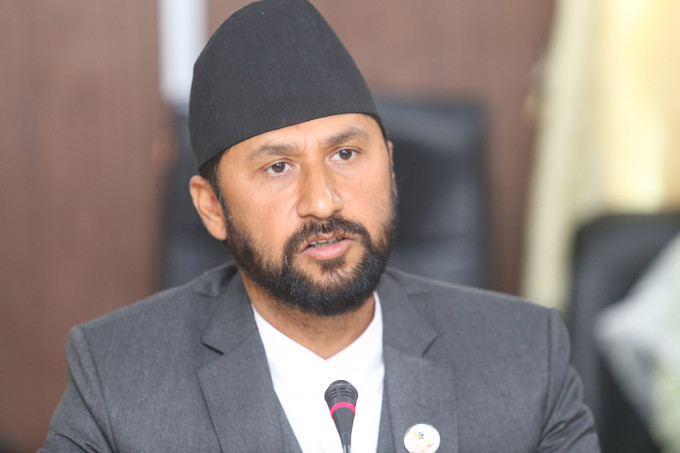Due to its geographical location, Nepal is one of the most vulnerable regions in the world in regards to climate change. The Ministry of Forest and Environment Nepal (MOFE), recognizes climate change as a serious threat to the country’s health system, agricultural production, tourism, economy and society as a whole. According to the World Health Organization, climate change is expected to cause approximately 250,000 additional deaths per year between 2030 and 2050.
Acknowledging the need to develop a research task force in Nepal for climate change-related study, the Nepal Health Research Ccouncil organized a "Training Workshop on Operational Research on Climate Resilient Health System in Nepal" with the support of WHO Nepal. The workshop was attended by 30 participants physically and 20 participants virtually and was concluded successfully on the 8th of May, 2022. It was attended by environmental experts, senior research officers, and policy makers of Nepal, from both government and non - government sectors.
The occurrence of diseases previously prevalent only in the Terai region of Nepal, is now prevalent in the Hilly and even Himalayan regions of the country. Diseases such as diarrhea, malaria, and dengue are likely to increase in the highlands of the country as a result of climate change. “Global evidence suggests that the outbreaks of many diseases like malaria, dengue are related to climate change. We have already seen outbreaks of these diseases in Kathmandu, Manang, and Mustang regions of Nepal in the previous years,” says environment expert Doctor Meghnath Dhimal.
The Government of Nepal, initiated the National Adaptation Plan (NAP) on September 2015 to develop medium and long-term adaptation strategies to combat climate change. The Department of Hydrology and Meteorology (DHM) has supported the NAP formulation process by studying and publishing a report in June 2017 on climatic change trends in Nepal. The report reveals that the temperature is expected to continuously increase throughout the 21st century. Similarly, the International Centre for Integrated Mountain Development (ICIMOD) is serving as an Inter - governmental platform for the countries located in the Hindu Kush Himalaya – Afghanistan, Bangladesh, Bhutan, China, India, Myanmar, Nepal, and Pakistan. ICIMOD is collaborating with the DHM in developing warning systems for floods in Nepal.
“Snowfall is decreasing every year in the Himalayan region of Nepal while the temperature there is steadily increasing,” says Ruby Shrestha, environment health expert and a participant at the NHRC climate change event. “Despite awareness programs effectively in place in Nepal, the lack of research generated evidence is preventing Nepal from adopting climate change policies.”, she adds.
Similar to Pakistan, home to the Karakoram Range of the Himalayas, including the second-highest mountain in the world after Everest: Mount K2, Manang, and Mustang regions of Nepal, have already seen climate-induced migration due to substantial rainfalls creating unlivable environmental conditions in previously habitable areas.
Recently Nepal has received 9 million USD as international aid, to combat climate change. “With Nepal being a model country for climate change research in the world, climate change is not just a problem but an opportunity for Nepal, to secure international funds and strengthen our health and sanitation systems by the proper utilization of it,” concludes environment expert Doctor Meghnath Dhimal.
READ ALSO:





1672397318_680.jpg)

